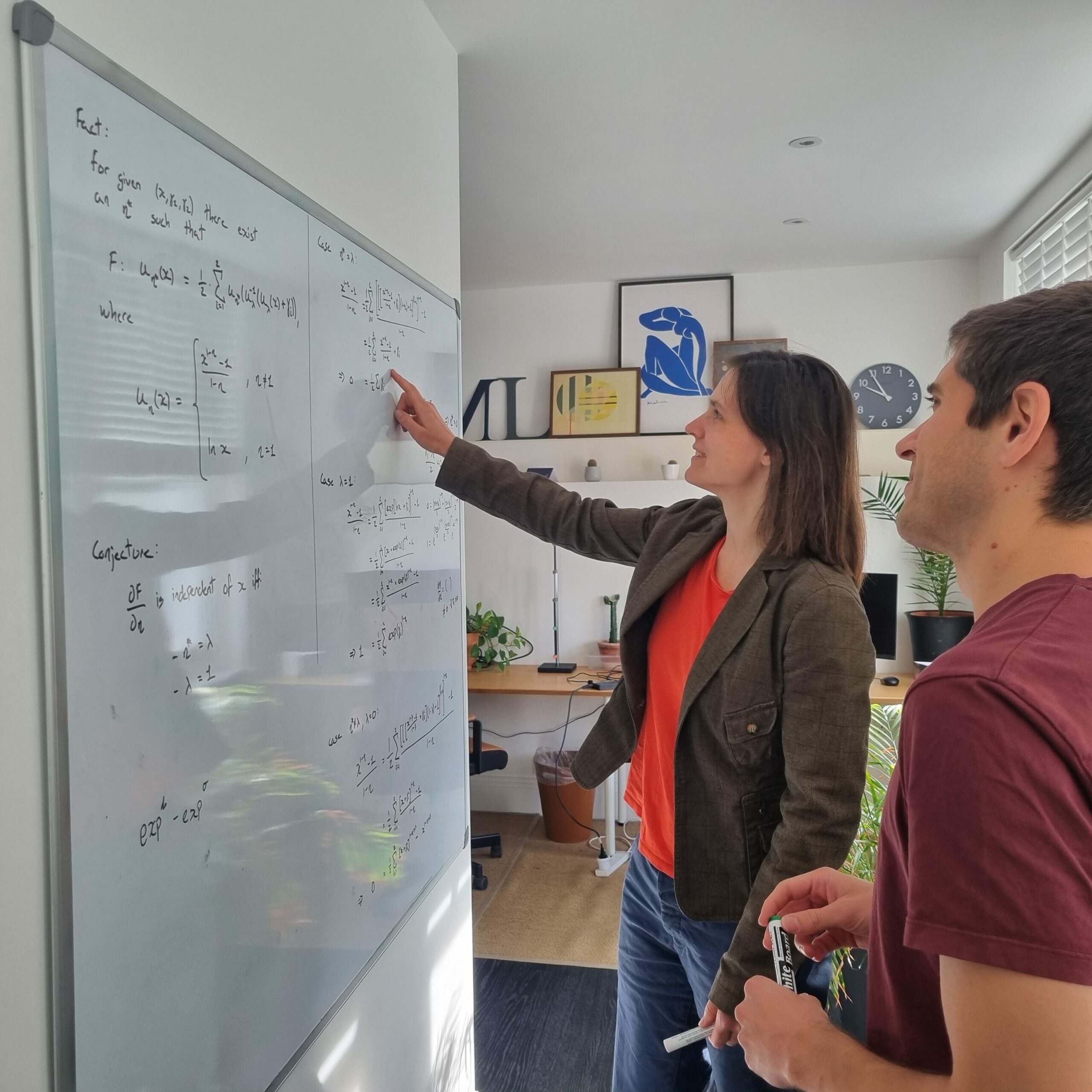Mathematical models are everywhere, informing decisions in business and government such as how to adapt to climate change, how to set financial policies, or how to respond to a pandemic. But models are never perfect: the map is not the territory. Our research programme looks at the mathematical properties of models and model outputs, with the aim of shaping methods for making supportable statements about the real world based on evidence from models.
Data-driven models
…laws of physics; online marketing; short-term non-extreme weather forecasting…
Where lots of relevant data are available and the objective is undisputed, the primary mathematical questions are about model fitting and optimisation.
It is tempting to pretend that most decision questions fall into this category but very few in fact do.
Hybrid models
…climate change; regulatory compliance; pandemic forecasting; business operations…
Where some data are available but the relevance is not perfect and/or the objective is only moderately well-defined, the mathematical questions include how to use available data for model calibration and evaluation; how to deal with ensembles of plausible models; and how to transfer “Model Land” confidence intervals into real world uncertainty statements.
Judgement-driven models
… social change; political forecasting; foresight and scenario analysis…
Where little to no relevant data are available and/or the objective is disputed, mathematical questions include how to combine quantitative expert judgements and what kinds of logical consistency to enforce.
Some examples of our research topics
1
How can evaluation metrics account for imperfect models?
2
Combining information from non-independent models.
3
How to construct more diverse model ensembles.
4
Inference from model-statements to real world.
5
Statistical methods for model interpretation.
6
Alternative modelling approaches.

Escape From Model Land
Dr Erica Thompson joined LML to work on her book project from 2019-2022. Escape From Model Land was published by Basic Books (UK and US) in hardcover, audiobook and Kindle – paperback version to follow in 2023.

Model evaluation
The intersection of this programme with our Ergodicity Economics theme, we have a long-standing interest in model evaluation using quantitative metrics (skill scores, loss functions, objective functions, etc).
Get involved
This programme is seeking partnerships to develop our research themes.
If you’re interested, get in touch.
